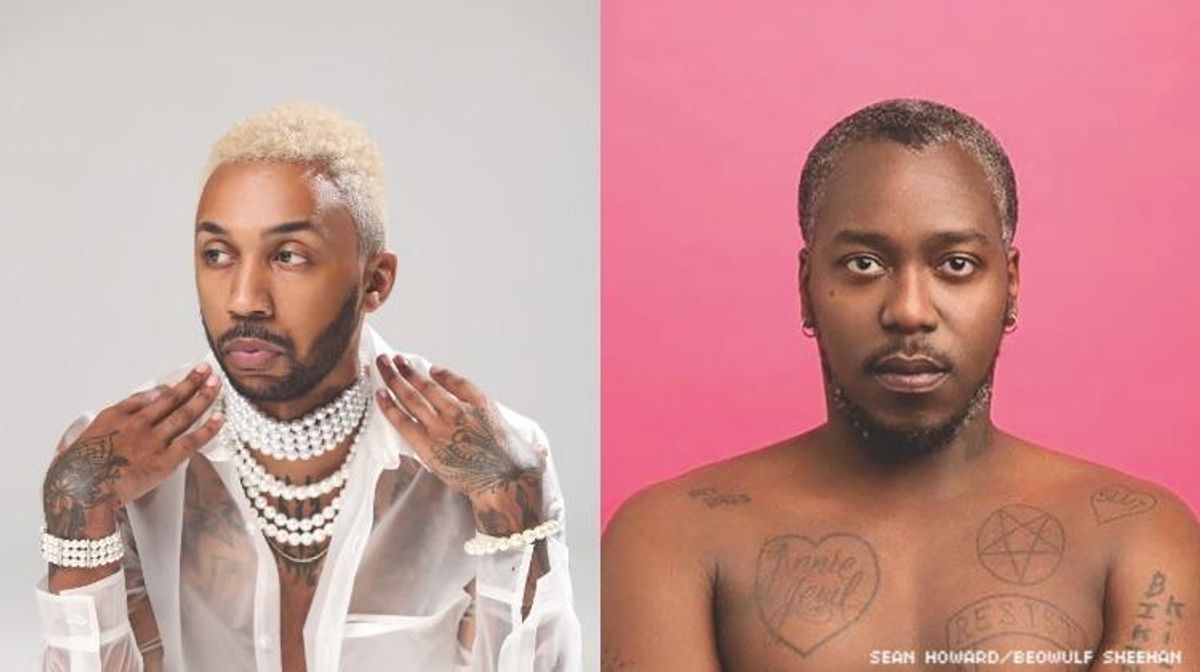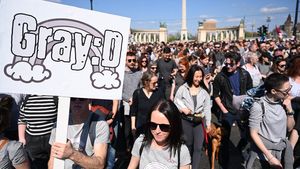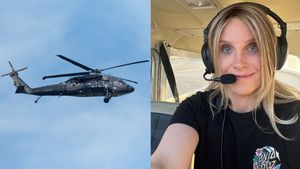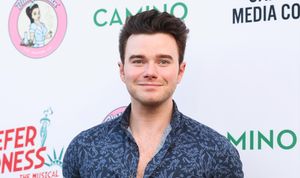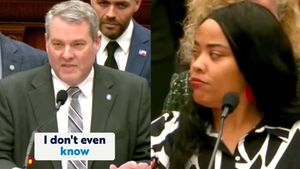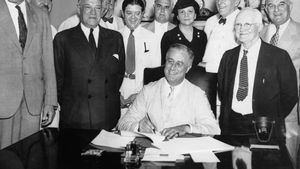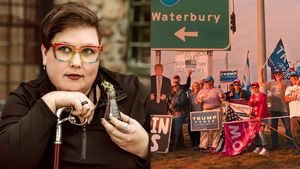There's a sliver of truth in the old adage that opposites attract, at least in the case of Brontez Purnell and George M. Johnson. Both Johnson's All Boys Aren't Blue: A Memoir-Manifesto and Purnell's 100 Boyfriends explore the meaning of queer Black identity, but their narratives reflect the different lenses through which these stories were experienced and retold.
Johnson's words can be as lyrical as they are jarring, often viscerally grabbing at the reader's emotions in probably much the same way they seized the author as he wrote them. As a journalist, his talent for essays has been honed in Buzzfeed News, Essence, and elsewhere.
Purnell is a also a journalist, as well as a musician, singer, dancer, performance artist, and author of the book Johnny Would Love Me If My Dick Were Bigger. He's the frontman for the queer rock band The Younger Lovers and founder of the Brontez Purnell Dance Company. His style can be described as irreverent and hysterical at times, even while covering issues of deeper importance. He received a Whiting Award for fiction in 2018.
Purnell and Johnson joined Out recently for a discussion on their books, as well as the writing process itself. Johnson describes All Boys Aren't Blue as a young adult queer Black memoir, discussing the period in his life from birth to age 21.
"The book primarily centers on my identity struggle with learning the intersections of my Blackness and my queerness," explains Johnson. "Through experiences that I had, the book touches on practically every facet...of the tough subjects, such as sexuality, validation. I discuss policing, I discuss anti-Blackness, racism--all of the very heavy subjects that oftentimes people say kids are too young to understand. The book also gives insight into what it's like to live at the intersections of Blackness and queerness as a young adult, and processing safety and processing identity issues at that age without having the proper resources and proper tools."
Purnell revealed 100 Boyfriends originally started as "an installation in a dance piece" that consumed him to the point that it eventually became a novel. No, it is not about 100 boys with whom he was romantically involved.
"That's fucking gross to me, I would never do that," Purnell exclaims with a burst of laughter. "It's actually about how every person you date kind of leaves you with a ghost. And within that, within them leaving you with a ghost, you're left with all their ghosts, too. So it's about the residual and accumulative effect of just relationships. There's a line in the book that says, 'Between two men there can be a hundred ghosts in the room.' So, yeah, it's about gay male isolation, rejection, and betrayal."
When asked about his intended audience, Purnell responded with an honest and lighthearted answer.
"I have absolutely no idea who my audience is," he says with a chuckle. His earlier book, Johnny Would Love Me If My Dick Were Bigger (aside from having one of the best book titles in history), generated greater response from a nostalgic older queer audience than the younger audience for whom it was intended.
"It's always like white punk rock women in their late 40s. That's...who have reached out to me about that book."
While Johnny Would Love Me If My Dick Were Bigger was intended for a younger audience, "100 Boyfriends is definitely something for weary old whores," Purnell assures us.
"It's interesting," Johnson adds. "I think the initial audience, of course, is Black LGBTQ youth. And then I think you have a secondary, non-Black LGBTQ youth who can also resonate with the story, even if they can't necessarily resonate with the race component. But then I think there's another level of people, which are the people who are the parents to LGBTQ children, and the guidance counselors and the teachers.... And so, you have a whole other community of people that operate actually knowing queer people, who know of queer people but don't know of their experience. And so I think that's like a whole other demographic that I kind of was expecting in many ways to show up and they are starting to show up more and more now.
Next, Purnell and Johnson discussed the writing process itself. Does the final product ever match what was envisioned by the author at the start of the project?
"You go into writing a book and have all kinds of thoughts on what it's going to look like at the end...with the intended goal of how it's going to come out and once you get into the writing process, a lot of things can change because not only are the things that motivate you possibly changing, but things in your actual life might be changing while you're in the process of writing," Johnson explained, revealing how he had to rewrite several portions of the book when his grandmother took seriously ill while he was working on it.
"One of my ultimate goals was to have a resource material or guide for Black queer kids, so they didn't have to make many of the mistakes that I made," Johnson continues. "And so initially, it was going to be a lot of solutions at the end of each chapter...kind of like summing it up. But as I was going through it, I realized that some of the stories didn't really have solutions.... It became important to not give this false sense that everything just turns out fine in the end and everything works itself out because some things don't. Some things are ongoing, and some things are never-ending, and some things are lifetime things that you just have to learn how to navigate and appreciate and adapt to."
"You know, I only ever give myself a couple of parameters in the beginning because it's just like, I mean, art is essentially a child, right?" questions Purnell. "It's like, you can sit there and hope to god that your child will have blue eyes. But it's really not up to you and if it comes out with brown eyes, you love it anyway."
After apologizing for putting "blue eyes at the hierarchy there," Purnell continues, "There's a process of watching something come to life in front of me. I think that's always kind of what I'm in it for--what kind of ingenuity you use to make it become real. I come from a theater background so when I write, usually the rule for me is I have to be able to recite the whole thing or most of it in my head, kind of like a sermon or something, when I actually write it down. And so there's that process and then writing it down. I actually write shit on paper just to give myself one more editing process between the paper and the computer."
Both authors realize the importance of helping queer Black youth in their own search for identity, affirmation, and inclusion. All Boys Aren't Blue and 100 Boyfriends may tell different stories, but both share the same basic message that it's okay to be queer, it's okay to be Black, it's okay to be yourself. There is no one-size-fits-all identity. Just as important as the search itself, though, is the understanding that there is no one set queer Black identity. Or as Johnson summarized, "Black people are not a monolith.
